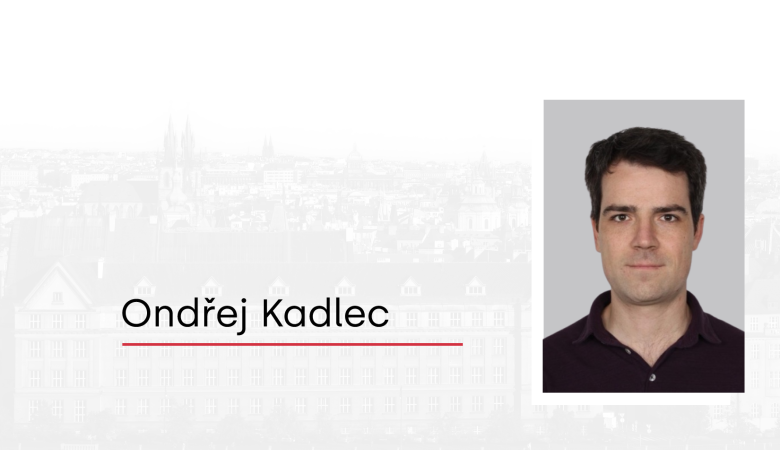Prague Constitutional Seminar Series: Ondřej Kadlec

Prague Constitutional Seminar Series: Ondřej Kadlec
The Department of Constitutional Law invites you to a seminar in the recently launched Prague Constitutional Seminar Series:
Ondřej Kadlec (Masaryk University) will present his draft paper, Managing Judicial Legitimacy: The Role of Grand Chambers in National and International Courts.
If you are interested in receiving the presented text, please enter your email here.
You can subscribe here for regular email updates about the seminar series.
The seminar will take place on Thursday, May 15, at 16:30 in Room 412.
The event will be held in Czech.
Everyone is warmly welcome!
Bio
Ondřej Kadlec is a researcher at the Judicial Studies Institute (JUSTIN) at the Faculty of Law, Masaryk University in Brno. He holds law degrees from the University of Oxford (MPhil 2019, DPhil 2025), Nova Southeastern University (J.D. 2014), and Charles University (Mgr. 2013, JUDr. 2020). His research focuses primarily on courts, legal reasoning, and constitutional theory. He is the author of the monograph Role velkých senátů v rozhodování vrcholných soudů České republiky (The Role of Grand Chambers in the Decision-Making of the Supreme Courts of the Czech Republic, Wolters Kluwer 2019), which was the subject of a special issue of the journal Jurisprudence (2021). In recent work, he has explored the phenomenon of Czech ‘super-judges’ and the impact of technology on the use of case law. He previously served as a law clerk to a judge of the Czech Supreme Administrative Court and has taught legal theory (in Prague), EU law (at Oxford), and constitutional law (in Brno). He passed the Czech judicial exam in 2019. He is currently working on an English-language book on the role of grand chambers at the Court of Justice of the EU and the European Court of Human Rights.
Abstract
The article I will present at the seminar examines the widespread practice of using extended judicial formations to decide selected types of cases in higher courts, a practice present in many jurisdictions—whether appellate, apex, or supranational. While these formations, often considered the ‘most important’, are frequently debated within individual countries, a conceptual and comparative analysis providing a firmer theoretical foundation for these discussions is currently lacking. Departing from existing scholarship, which often assumes a universal purpose for these bodies, I will argue that jurisdictions tend to adopt one of two ideal models of extended formations: the representative model or the jurisprudential model. These models reflect divergent sources of legitimacy for the enlarged formations—either rooted in the broader participation of judges in the court’s decision-making process (input or procedural legitimacy), or in the doctrinal quality of the decisions that the grand chamber produces and the consequences they bring about (output or performance-based legitimacy). These distinctions help to explain differences in how extended formations are composed, the types of cases they hear, the procedures they follow, and how their decisions are written and subsequently used within the court. Ultimately, I will argue that the choice between the two models reflects broader assumptions within different judicial systems about the nature of law and judging.








